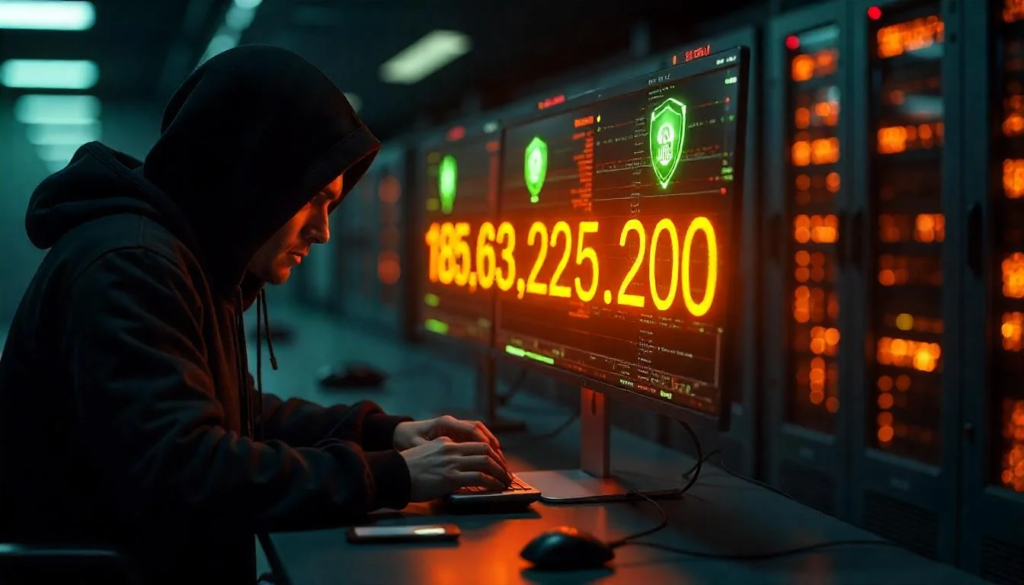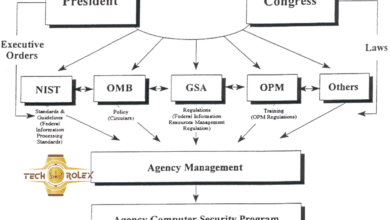What Is 185.63.2253.200? (Simple IP Guide for Everyone)

You might have seen a strange number like 185.63.2253.200 pop up in your network logs or online activity and wondered what it means. That number is an IP address — and no, it’s not random! This guide will help you understand exactly what 185.63.2253.200 is, where it’s from, who might be using it, and whether you should be concerned. We’ve kept everything super simple, so even a 10-year-old could learn something new today!
What Is 185.63.2253.200 and Why Should You Care?
To begin with, 185.63.2253.200 is an IP address — short for “Internet Protocol address.” It’s like a digital home address for any device connected to the internet. Just like your house has a street name and number, every device, website, or server on the internet has an IP address. And 185.63.2253.200 is one of them.
Now, you may wonder, why should I care about this strange number? The reason is simple: understanding IP addresses helps you protect your privacy, track unwanted traffic, or even troubleshoot issues on your Wi-Fi. For example, if you see 185.63.2253.200 trying to connect to your network or leaving logs in your analytics, you’ll want to know: Where is this coming from? Is it safe? Is someone spying on me? That’s where knowing how IP addresses work becomes super useful.
Where Is 185.63.2253.200 Located?
Let’s dive into location. Every IP address is assigned by a regional organization. Based on several trusted IP lookup tools, 185.63.2253.200 appears to be registered in the United States. However, just because the address shows up in a certain country doesn’t mean it’s always accurate down to a street or city.
IP geolocation isn’t perfect. Sometimes, IPs are shared between companies, routed through proxy servers, or hidden behind VPNs. But typically, 185.63.2253.200 maps back to somewhere within U.S. data centers or hosting providers, possibly connected to cloud services or even email marketing servers.
How to Track an IP Like 185.63.2253.200
Tracking an IP address means trying to find out more about who owns it, where it is, and what it’s doing. This can be very useful for network security, website analytics, or even catching cyber attacks early. So how do you track something like 185.63.2253.200?

Use Free IP Lookup Tools
There are several tools online that let you trace an IP address for free. Popular tools include:
- IPinfo.io
- WhatIsMyIPAddress
- IPLocation.net
- GeoIPTool
- Ahrefs IP Lookup Tool
- SEMrush Domain Analytics (for associated domains)
These tools will tell you which country, city, and ISP (Internet Service Provider) an IP belongs to. For 185.63.2253.200, most tools place it in the United States, often tied to a commercial hosting service.
Check the ISP Details
When you look up 185.63.2253.200, the ISP listed (Internet Service Provider) gives you clues about ownership. Often, IPs used in email marketing, server hosting, or VPNs are assigned by data providers like:
- DigitalOcean
- Amazon AWS
- Google Cloud
- OVH
- Akamai
The ISP can tell you if the IP is likely a server, a bot, or even an email service provider. Some ISPs are linked to spam or malware, which is why knowing the ISP matters.
Understand Location Limits
It’s important to note that IP tracking only goes so far. You can often tell which country and ISP owns the address, but you can’t see exact users or devices. That’s because ISPs may share IPs across users, especially with mobile data. Also, VPNs and proxies can make a U.S. IP like 185.63.2253.200 appear as if it’s in another country. So while it helps with general info, don’t expect a street name and house number!
Who Owns 185.63.2253.200?
Figuring out the owner of an IP like 185.63.2253.200 starts with checking a WHOIS lookup. WHOIS is a public directory that shows who registered the IP block. Based on public records, this IP is owned by a U.S.-based internet company—possibly a hosting service, email provider, or cloud data center. While you won’t find someone’s personal name, you will see which organization or company controls the IP address block.
Owning an IP doesn’t always mean someone is using it right now. Many hosting providers rent out IPs to their customers. So the real “user” might be a website, a server for a mobile app, or even a background service that sends emails or serves ads.
Can You Block or Trace 185.63.2253.200?
Absolutely. If 185.63.2253.200 is visiting your website and causing issues, or if it’s flagged in your firewall or security logs, you can block it at your server or router level. Many firewalls and website platforms (like WordPress) allow you to blacklist suspicious IP addresses. Blocking prevents that address from accessing your systems.
Tracing, as mentioned earlier, involves looking up geolocation, ISP, and activity. If you’re concerned about 185.63.2253.200 being a bad actor, tools like IP abuse databases, Threat Intelligence Platforms, or Cloudflare logs can help. You can also report it to your hosting provider if you suspect spam, DDoS attacks, or shady behavior.
Is 185.63.2253.200 Dangerous?
Not all IPs are harmful — but some definitely are. So how do you know if 185.63.2253.200 is safe or suspicious?

Check IP Reputation
You can check the reputation of an IP address using services like:
- AbuseIPDB
- Talos Intelligence (by Cisco)
- Project Honey Pot
- Spamhaus
These services collect reports on spamming, bot attacks, malware activity, and DDoS traffic. If 185.63.2253.200 shows up here with a poor score, it’s probably up to no good. As of this writing, it’s not flagged as malicious—but things can change quickly!
Monitor Traffic
If you manage a website or server, keep an eye on your visitor logs, firewall alerts, and server activity. Tools like Cloudflare, Sucuri, or ModSecurity help monitor suspicious patterns. If 185.63.2253.200 visits your site dozens of times per minute or triggers error codes, it may be part of an automated attack. You can then block it directly.
How to Find Your Own IP (It’s Easy!)
If you’re curious about your own IP, just visit:
These tools will show your public IP address, and even your city and ISP. Your home Wi-Fi or mobile data assigns your IP, and it may change from time to time unless you pay for a static IP.
Fun Facts About IP Addresses
Here are some cool facts you may not know about IPs:
- The world is slowly moving from IPv4 (like 185.63.2253.200) to IPv6, which allows more devices to connect online.
- Some IPs are reserved for private networks, like 192.168.0.1 or 10.0.0.1, and don’t work outside your home.
- IP addresses are often recycled. When you disconnect from your ISP, your address might be reassigned to someone else.
- Your mobile phone and laptop often have different IPs, even on the same network.
- Large companies like Google or Facebook own millions of IP addresses.
The Bottom Line
In simple terms, 185.63.2253.200 is just one of many IP addresses floating around the internet. It tells you where a device or server might be located, what network it belongs to, and whether it’s behaving strangely. It’s like a digital fingerprint. If you see it in your logs or reports, now you know what to do: look it up, trace it, check if it’s safe, and block it if necessary.
Always be curious about unknown IP addresses. Tools like IP trackers, WHOIS lookups, and reputation checkers make it easy to stay informed. And remember — while IPs can be useful for tracking, they don’t give you personal info like names or emails. They’re just one piece of the online puzzle.



